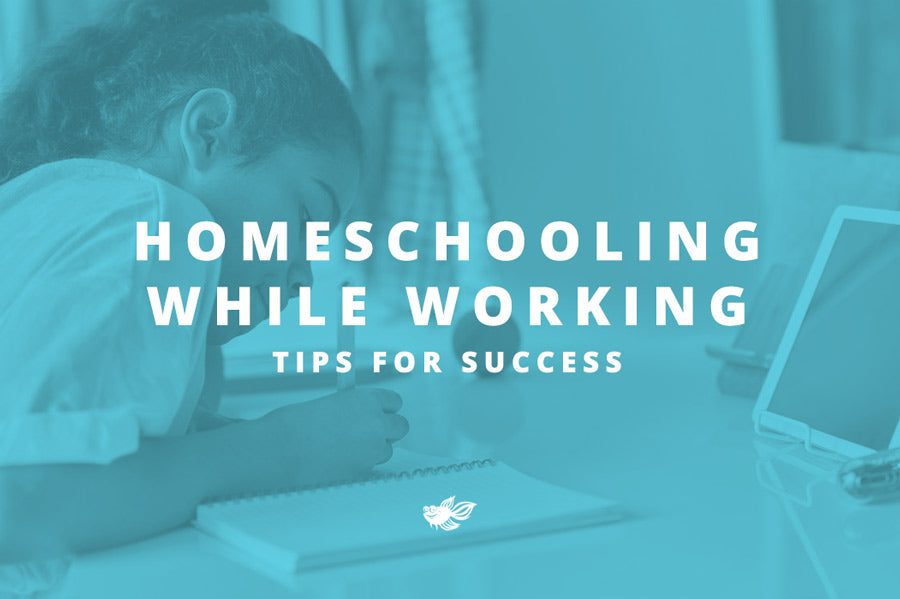
The New Normal
School closings due to Covid-19 have thrust many parents into homeschooling their kids. And being a teacher on top of all their other roles can overwhelm the most patient of parents. Whether working outside the home in an essential job, or working from home, or dealing with a job loss - it's all stressful. I’ve learned a few things over the years as a tutor and substitute teacher that can be helpful. So here are some suggestions to make homeschooling while working a bit easier.
It's all new for everyone
Remember that this is new for everyone. Teachers, in partnership with their districts, are having to come up with online learning plans. Students are adapting to new virtual classrooms - and less face time with their teachers and fellow students. Parents are learning how to corral kids so their learning time is beneficial.
Don't be too hard on yourself
I know some parents are really concerned that their kids will fall behind. My advice is, don’t worry. Many districts are working hard to ensure that all kids have the technical resources (laptops, wifi) they need to get their work done. Many states are canceling standardized testing - and even postponing school until next fall. Whenever kids are back in schools, teachers will need to strive to bring all kids up to the same level before presenting new material.
Many schools are abandoning grades
Many school districts have struggled to implement virtual learning. Not all kids can access virtual classrooms, whether for lack of equipment, wifi, or parental support. Schools are still figuring out how to address special education requirements. So many districts are not grading the work they assign. Or, if they do, they have a policy that the grades can only help, they can’t hurt a child’s average.
Establish a dedicated work space if possible
Your child will do better if they have a space that is specifically designated their work space. For younger children it should be nearby, for older children it can be in their room. Even a spot at the kitchen table can be the homework space - it doesn't have to be exclusively reserved. It just helps if they know that is the place for working on school work.
Have a schedule - but also be flexible
Schedules and routines are good for kids - it helps them to stay focused and on track. But don’t be afraid to let them sleep in a little later than the usual school schedule. Studies show kids can use more sleep and since they don’t have to go anywhere, there’s some found time. Do have a start and finish time for school work.
Establish specific movement breaks
All kids need periodic times to move around. For some it can be as simple as rolling around on the floor. Some kids benefit from a more sensory experience - such as laundry bottles filled with sand or water (sealed tight, of course) - which they carry up and down the stairs a few times. Others need a goal-oriented task - maybe they can go outside and collect 10 leaves or interesting rocks. And if it’s bad weather, use a video resource such as Go Noodle to get them moving around.
Use a timer and stickers
You may find that setting a timer and keeping a stash of stickers can help. This is often a good strategy for kids who have difficulty staying on task. Give a sticker (or a star if stickers are not available) for each 10 minutes spent on task - with a reward at the end of a set period of time - longer time for older kids. The reward can be 10 minutes or so of screen time, a snack of fruit, 10 minutes of playtime with you - whatever motivates your child.
Don’t worry if the schoolwork is done in less time than a school day
The academic part of your child’s day at school is less than the amount of time your child spends in school. Much of the day is filled with non-educational stuff like transitions, recess, gym, specials, reading out loud, snack, waiting for the copier to work, assemblies, etc. The actual learning takes up a fraction of the school day. So don’t worry if your child can complete their schoolwork in 2-3 hours.
Focus on skills
Encourage your kids to play online and offline games that build math and reading skills, as well as other developmental goals like sportsmanship, spatial reasoning, logical thinking. Many schools have sent out enrichment resources - utilize them. If not, there are additional school materials available for free at Education.com.
Review the work before they do it
Check over worksheets and assignments. Eliminate work that you don’t feel adds value. This can be busy work, or repetitive worksheets. Revise work that seems too low (or high) for your child’s level. If there are too many problems, cross some out. If there are too few - add more examples or ask your child’s teacher for additional materials. This will help you to avoid melt-downs and boredom.
Teacher Communication
Some teachers are doing a great job communicating with their students. They're using Zoom conferences, Google Classroom, holding virtual help sessions, and giving out email addresses for questions. Make sure you and your child know all the ways to get help - and encourage your child to use all the available resources for help. For younger children, you might need to reach out to teachers yourself to ask for guidance. Don't be shy - those math worksheets can be confusing even for us adults!
Reward kids for reading
Yes, reward kids for reading. I know, I know - we want them to want to read. But sometimes they just don’t want to. And yet we know that reading is a key skill for all learning. They need to be able to read in order to learn other subjects, like history, science, even math. So get them reading and keep them reading. Reward them with computer time, tv time, free time, whatever it takes to get them reading.
Science Day
Science takes a back seat to math and reading in many elementary schools. So make one day a week Science Day. There are lots of online resources for fun, easy science projects that your kids will love. Set a time when you can manage the project - maybe it’s lunch time, or first thing in the morning - whenever you can devote full attention.
Enrichment Activities
Sometimes it makes sense to forego the academics and focus on creative pursuits. Music, art, baking, gardening and the like can all be a great break from traditional subjects. Little kids' minds benefit greatly from opportunities to dig in to learning an instrument, drawing, or actually digging in dirt.
Finally - Go easy on your kids and yourself
This is a difficult time for everyone. Even young children know things are not the same - and that can cause anxiety. And we adults are “off” as well. Whether it’s the anxiety around going to the grocery store, working outside the home, or just cabin fever - we all need a little extra TLC. And the most important lesson might be the one our kids learn from watching us respond to the trials of Covid-19 with grace and compassion.
By Liz Smith. Liz has worked across the globe for many of the world's best known apparel brands, including Justice, Chico's, Victoria's Secret, and Hanes. She has worked closely with dozens of factories in more than 20 countries to ensure that production is of the highest standard. Liz has managed all aspects of garment production, from design through fabric development to sewing and merchandising - so she knows what it takes to make high-quality apparel. Liz is thrilled to share her knowledge about clothes to help discerning customers choose the finest products.

